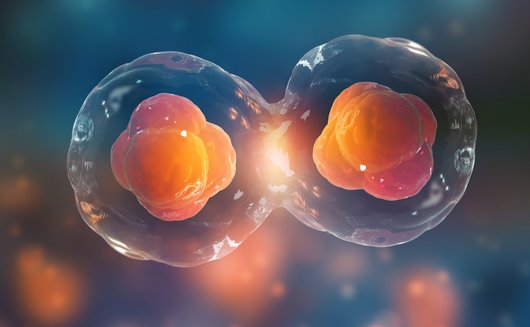
Helmholtz Diabetes Center Institut für Pankreatische Inselzellforschung
Die Mission des IPI ist der Schutz und die Wiederherstellung der Insulin-produzierenden Betazellen der Bauchspeicheldrüse zur Prävention und Heilung des Diabetes mellitus.
Die Mission des IPI ist der Schutz und die Wiederherstellung der Insulin-produzierenden Betazellen der Bauchspeicheldrüse zur Prävention und Heilung des Diabetes mellitus.
Über uns
Die Forschung am IPI konzentriert sich auf die Langerhans´schen Inseln der Bauchspeicheldrüse. In diesen Inseln befinden sich die Insulin-produzierenden Betazellen welche beim Typ-1 und Typ-2 Diabetes geschädigt oder gar zerstört werden. Das Studium der zugrunde liegenden Mechanismen und deren besseres Verständnis helfen den Wissenschaftlern bei der Entwicklung neuer Therapieansätze.
Seit Januar 2016 gehört das IPI als Satelliten-Institut zu Helmholtz Munich und bildet den Kern des bereits zuvor gegründeten Paul-Langerhans-Instituts Dresden (PLID) des Deutschen Zentrums für Diabetesforschung (DZD e.V.).
Derzeit umfasst das IPI 16 Forschungsgruppen, die sich mit verschiedenen Aspekten der Diabeteserkrankung beschäftigen. Die Wissenschaftler arbeiten daran, die Mechanismen zu entschlüsseln, die die Zerstörung und/oder Funktionseinschränkung der Betazellen bedingen und versuchen darüber hinaus, neue Ansätze zu entwickeln um die geschädigten bzw. zerstörten Betazellen zu ersetzen.
Unsere Mission ist daher der Schutz und die Wiederherstellung der Insulin-produzierenden Betazellen der Bauchspeicheldrüse zur Prävention und Heilung des Diabetes mellitus.
Ein internationales Wissenschaftlerteam verschiedenster Fachrichtungen konnte über die letzten Jahre für den Standort Dresden gewonnen werden und macht das IPI zu einem der führende Orte für Diabetesforschung in Deutschland. Die interdisziplinäre Zusammenarbeit und die enge Verknüpfung von Experten verschiedener Fachdisziplinen wie der Genetik, Immunologie, Zell- und Entwicklungsbiologie mit den klinischen Abteilungen der Inneren Medizin und der Viszeral-, Thorax- und Gefäßchirurgie oder den Stammzellexperten garantieren dabei eine translationale Ausrichtung der Forschung. Die exzellente Forschungsinfrastruktur am Dresdner Standort stellt die Basis für zukünftige wissenschaftliche Spitzenleistungen.










![[Translate to German:] [Translate to German:]](https://images.admiralcloud.com/v3/deliverEmbed/83895c99-5670-4e4c-bca2-1fc6e0d959dd/image/cropperjsfocus/915/550/0,0,960,469,0,1,1/480,234.5?poc=true)
![[Translate to German:] [Translate to German:]](https://images.admiralcloud.com/v3/deliverEmbed/ac4981a4-3b07-42c6-a839-d6b7337b402e/image/cropperjsfocus/915/550/0,0,1920,1457,0,1,1/960,728.5?poc=true)
![[Translate to German:] [Translate to German:]](https://images.admiralcloud.com/v3/deliverEmbed/811349a6-9231-4ffe-8cb0-a646341bef7b/image/cropperjsfocus/915/550/0,0,960,560,0,1,1/479.99999999999994,280?poc=true)

![[Translate to German:] [Translate to German:]](https://images.admiralcloud.com/v3/deliverEmbed/b46e5b15-e227-411a-9643-4f333e6029e3/image/cropperjsfocus/915/550/0,0,1280,768,0,1,1/640,384?poc=true)







































